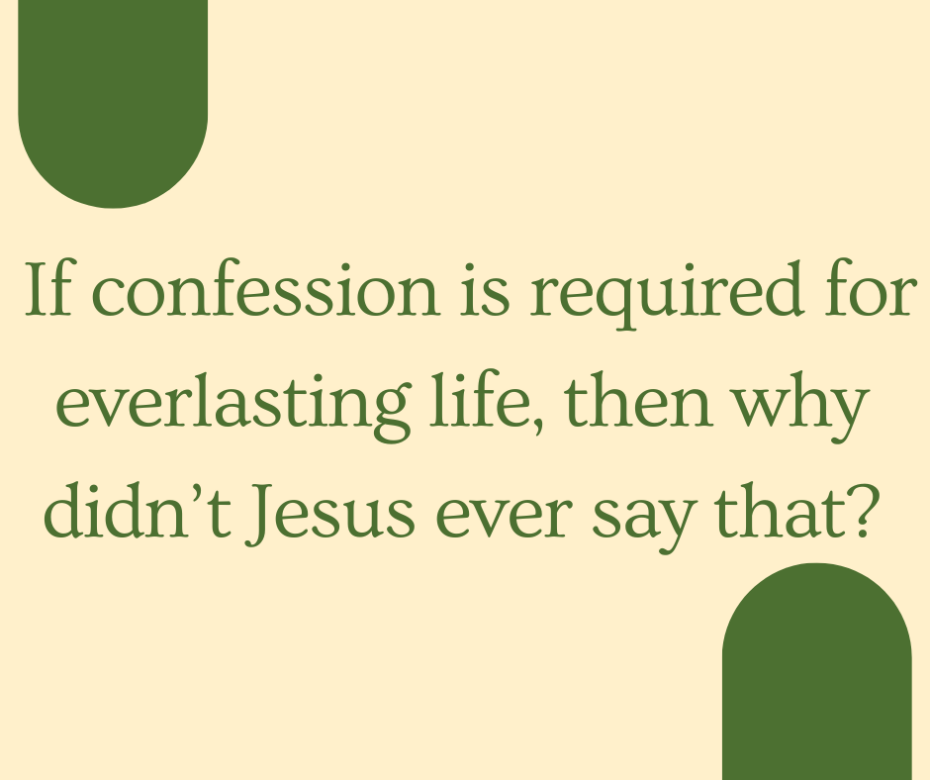Mark asks a question that has been popping up a lot lately:
Hi, Mr. Wilkin. I am struggling with the idea 1 John 1:9 is speaking to both believers and unbelievers. Andrew Farley proposes this and states that 1 John 1:9 in the sense most churches and theologians believe is the equivalent of the Catholics need for their confession rituals. My question is how I answer this? Thanks for your consideration.
Dr. Andrew Farley is the Lead Pastor at The Grace Church in Lubbock, TX. He is also the author of nine best-selling books, including The Naked Gospel.
Farley does not believe that 1 John 1:9 is speaking to both believers and unbelievers. He thinks it is speaking exclusively to unbelievers. In his view, if you are a believer, your sins are all forgiven. He rejects the distinction of positional and fellowship forgiveness. He suggests that forgiveness is forgiveness.
I found a video in which he is preaching about 1 John 1:9. See here.
In the video, he says that 1 John 1:9 “is not about a believer” (see this time stamp: 24:37-42). He says, “1 John 1:9 is a beautiful verse. It’s evangelistic” (22:42-46).
Farley says confessing that we are sinners is a condition of everlasting life: “Admit our sinful state. Confess our sins…Confess that you do have sin. Stop saying you have no sin and Jesus will enter your life. He will indwell you. He will seal you with His Spirit, causing you to be born again (22:50-23:25).i
Then he suggests that 1 John 2:12 proves that 1 John 1:9 concerns unbelievers:
You see that? Your sins have been forgiven you. Past tense. Is it in process? Nope. Is it progressive? Nope. Is it positional or relational or patriarchal or whatever? No. No. No. No. It’s just truth. It’s just truth. Your sins have been forgiven. If you are one of God’s little children, which we are, then your sins have been taken away once for all. Same author. Same letter. Next chapter. So simple (time stamp: 25:05-25:38).
He also said, “You don’t need any more forgiveness. It is finished…You are not falling in and out of fellowship. You’re in [fellowship]. You’re one with Him forever” (28:33-29:17).
There are at least seven insurmountable problems with this view.
First, confessing our sins is not a condition of everlasting life. Read John’s Gospel. The Lord did not bring up the confession of sins or the forgiveness of sins in any of His evangelistic messages. He said that the sole condition of everlasting life is believing in Him. Believing in Jesus is not the same as confessing our sins.
If 1 John 1:9 is the saving message, then believing in Jesus is not required. Just confess your sins and you will have everlasting life.
Second, the forgiveness of sins is not the same as having everlasting life, as 1 John 1:9 shows. It is possible to have everlasting life, yet not have all your sins forgiven. Only if we walk in the light (1 John 1:7) and confess our known sins (1 John 1:9) do we have ongoing forgiveness.
Third, 1 John 2:12-14 is not telling us what is true of all believers. John is talking about his readers, who were mature believers. Notice that in 1 John 2:12-14 he says that the readers have thus far overcome the wicked one, that they are strong, that the Word of God abides in them, and that they know God in their experience. If you read on in the chapter, John says, “You do not need that anyone teach you” (v 27). That is certainly not true of all believers. Of course, even these mature believers, likely elders in local assemblies, needed ongoing teaching. But John’s point is that they did not need instruction on the fundamentals of the faith since they were already well-grounded.ii
Fourth, if 1 John 1:9 is evangelistic, then it is unworkable. Notice that John speaks of sins, plural. He is not merely suggesting that we confess that we are sinners. He is saying that we need to confess the specific sins of which we are aware. And, of course, this is an ongoing issue, not a one-time event.
How would an unbeliever confess his specific sins? Is the unbeliever supposed to make a list of all the specific sins he committed thus far in his life? That might take a long time.
Fifth, the foot washing incident in John 13 illustrates 1 John 1:7. Cleansed people need ongoing cleansing.
Sixth, the first plural in 1 John 1:9 shows that John is talking about believers. He even includes himself and the other apostles! If WE confess OUR sins, He is faithful and just to forgive US OUR sins. Compare with 1 John 2:2.
Seventh, the NT is clear that not every believer is in fellowship with God (e.g., the prodigal son, Demas, the believers in Corinth who died for abusing the Lord’s Supper, Hymenaeus and Alexander, Diotrephes, Ananias and Saphira, etc.).
What I have suggested should help Mark and all of us talk with someone about this issue. You may not remember all of that. The key to explaining any Bible passage is to remember the context. There are three keys to interpretation: context, context, context.
In Texas we have a saying that applies to Dr. Farley’s interpretation of 1 John 1:9: That dog won’t hunt.
Keep grace in focus.
i Though he does say that anyone who confesses he is a sinner is born again, later he said one must also “have understanding, call on the Lord, and receive Christ” (27:11-15). He did not explain what you need to understand or what it means to call on the Lord and receive Him. That is certainly inconsistent and confusing.
ii The context concerns false teachers, whom John calls antichrists. His point is that the mature readers did not need anyone––let alone false teachers––to teach them the basics of the faith!


